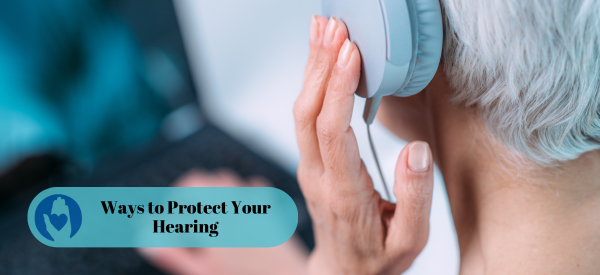May is Better Hearing and Speech Month, a time to raise awareness about hearing health and promote strategies for preventing hearing loss. Hearing loss is a common condition among seniors, impacting their quality of life and interpersonal connections. Let’s explore the prevalence of hearing loss among seniors, its primary causes, and practical steps seniors can take to protect and preserve their hearing.
The Prevalence of Senior Hearing Loss
Hearing loss is a widespread issue among older adults, affecting a significant portion of the senior population. According to the National Institute on Deafness and Other Communication Disorders (NIDCD), approximately one in three people between the ages of 65 and 74 experience hearing loss, and the number increases to nearly half for individuals aged 75 and older. With the senior population steadily growing, it’s crucial to address this concern and provide effective preventive measures.
Symptoms of Age-related Hearing Loss
Here are some of the most common symptoms of age-related hearing loss: speech sounds mumbled or slurred, high-pitched sounds are hard to distinguish, conversations are difficult to understand, some sounds seem overly loud and annoying, Tinnitus (ringing in the ears) in one or both ears. Make sure to consult your health care provider or aid if you or someone you know is experiencing any of these symptoms.
The Most Common Causes of Senior Hearing Loss
Several factors contribute to age-related hearing loss, also known as presbycusis. The natural aging process is the primary cause, leading to a gradual decline in hearing function over time. Other factors include exposure to loud noises throughout life, hereditary factors, medical conditions, certain medications, and previous ear infections.
How to Prevent Hearing Loss in Old Age:
While age-related hearing loss may be inevitable to some extent, there are proactive measures seniors can take to protect their hearing and slow down its progression. Here are some practical strategies:
- Limit Exposure to Loud Noises: Avoid prolonged exposure to loud sounds or use hearing protection, such as earplugs or earmuffs, in noisy environments. This includes loud concerts, sporting events, and noisy machinery.
- Maintain Ear Health by Leaving Earwax Alone: Keep ears clean and dry to prevent infections and damage. Avoid inserting cotton swabs or other objects into the ear canal, as they can cause injury. If you suspect an ear infection, seek prompt medical attention.
- Get Regular Hearing Evaluations: Schedule regular hearing check-ups with a qualified audiologist or healthcare professional. Early detection of hearing loss allows for timely intervention and appropriate treatment.
Senior hearing loss is a prevalent condition that can significantly impact an individual’s well-being and connections with others. By understanding the causes and taking preventive measures, seniors can take control of their hearing health. Remember, regular hearing evaluations, healthy lifestyle habits, and proactive strategies are essential for preserving hearing abilities and maintaining an active and engaged lifestyle throughout the golden years. During Better Hearing and Speech Month and beyond, let’s continue to prioritize senior health and work together to build a society that supports and values clear and effective communication for everyone, regardless of age.




